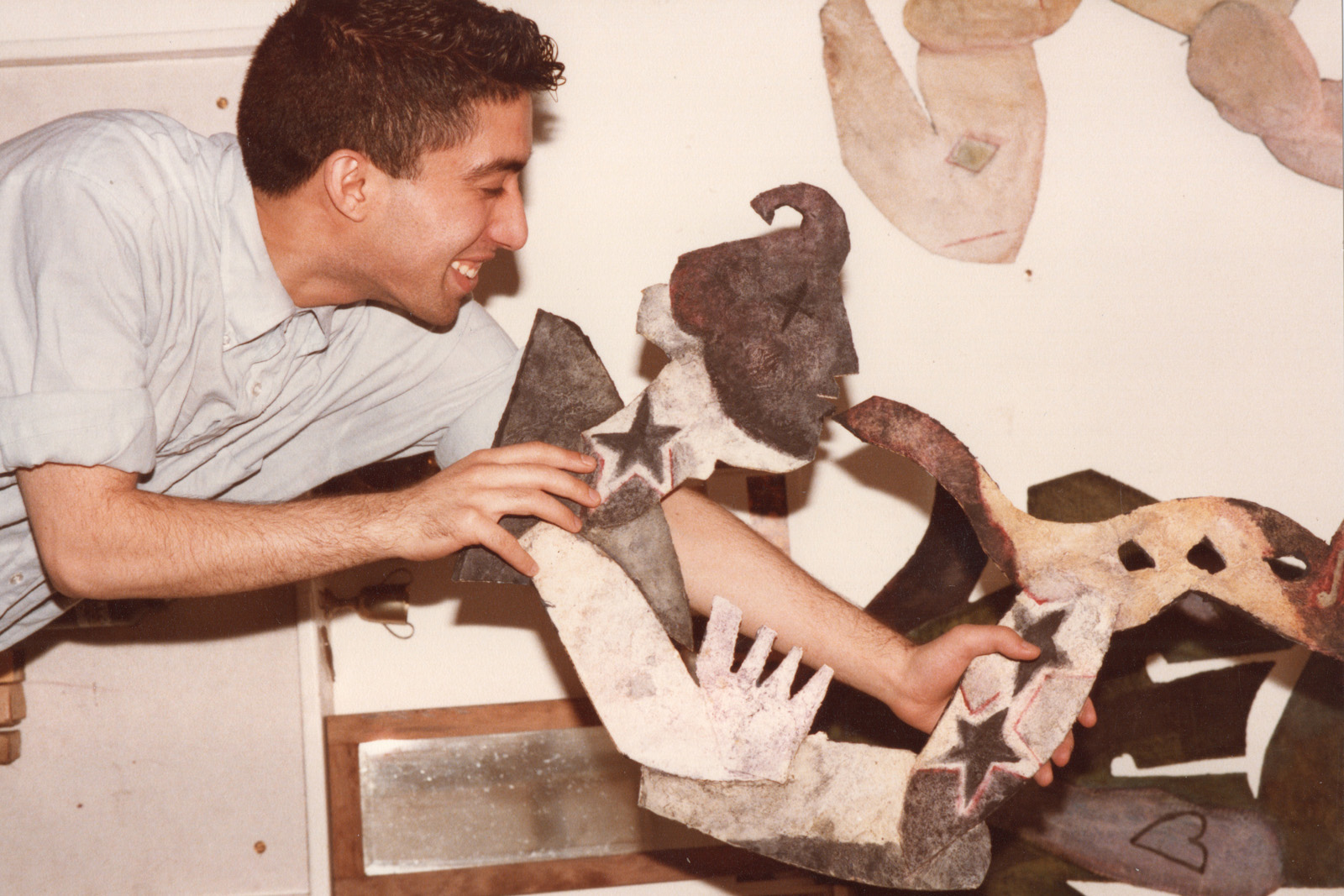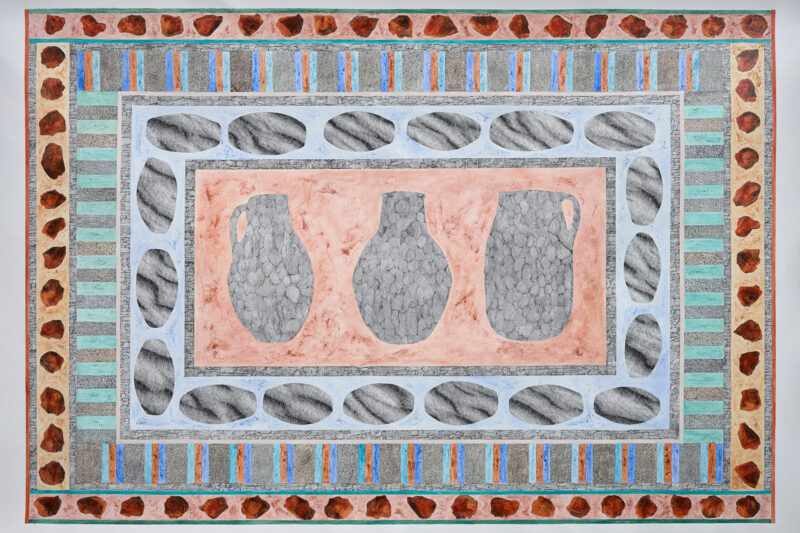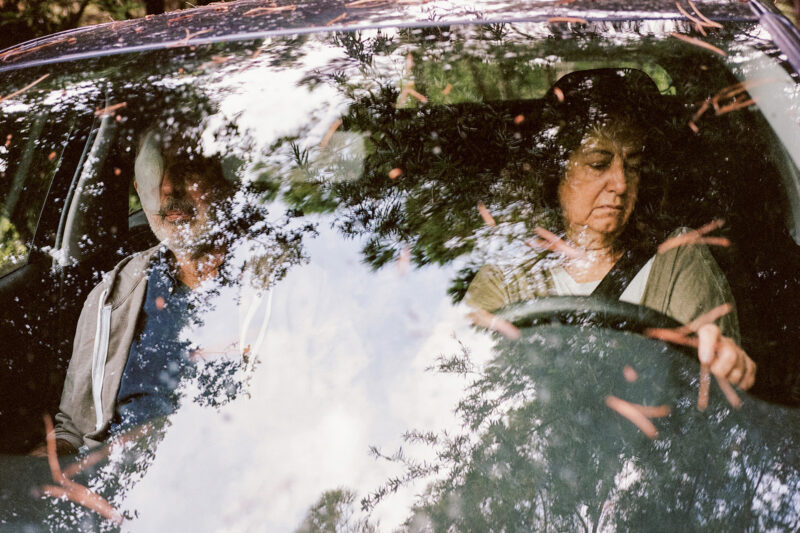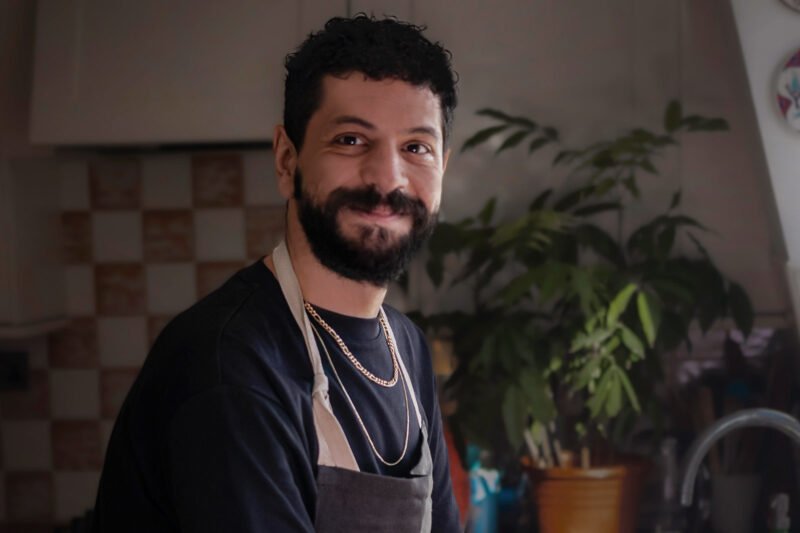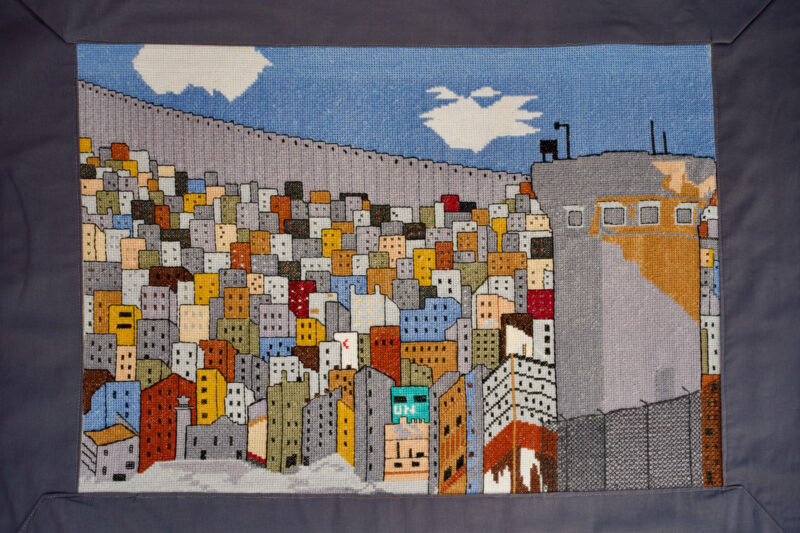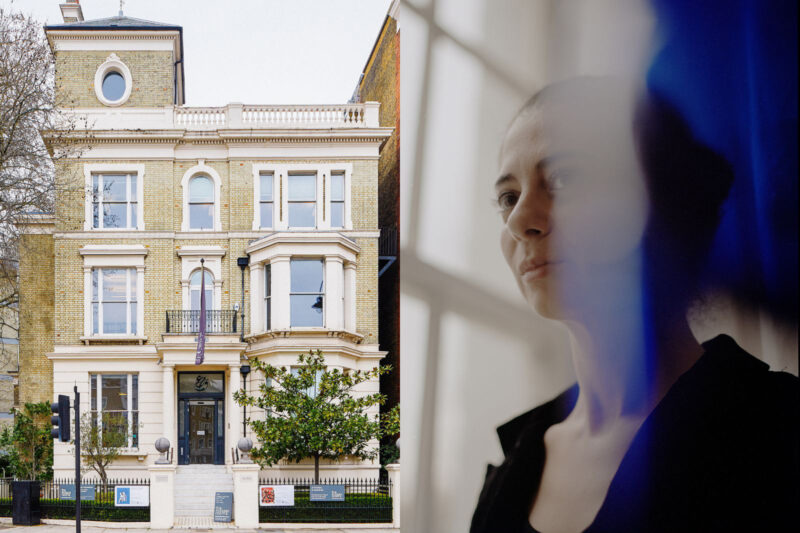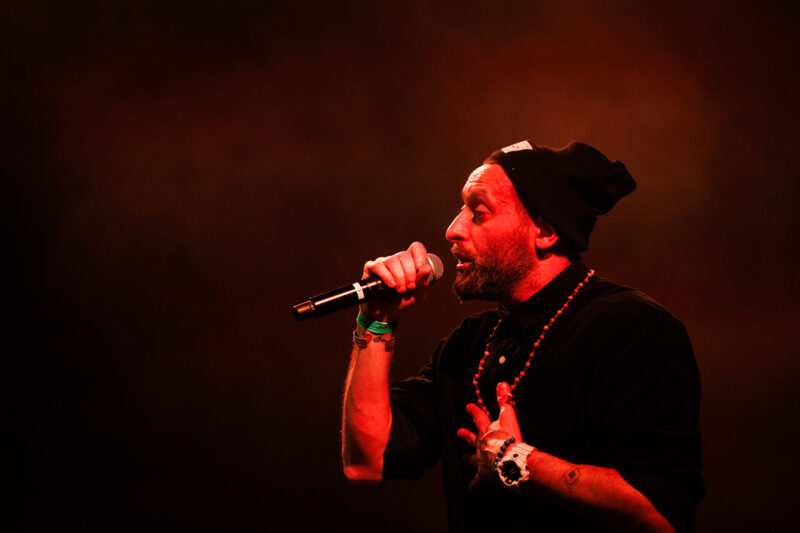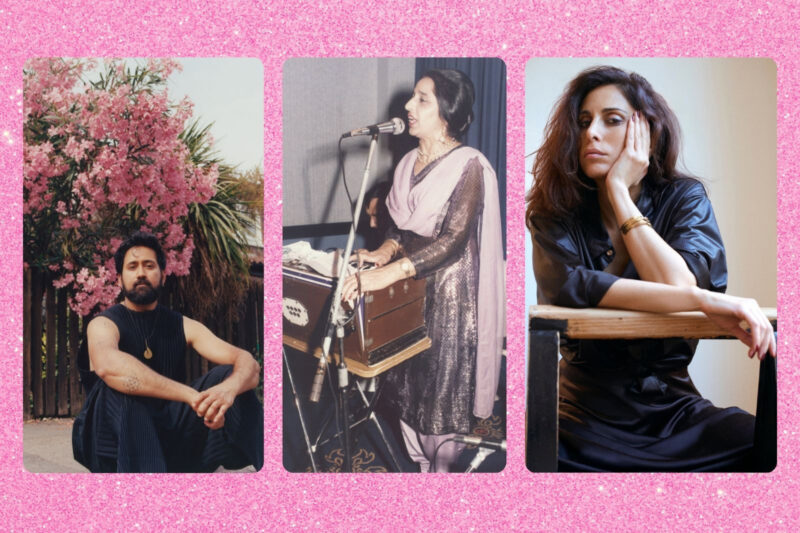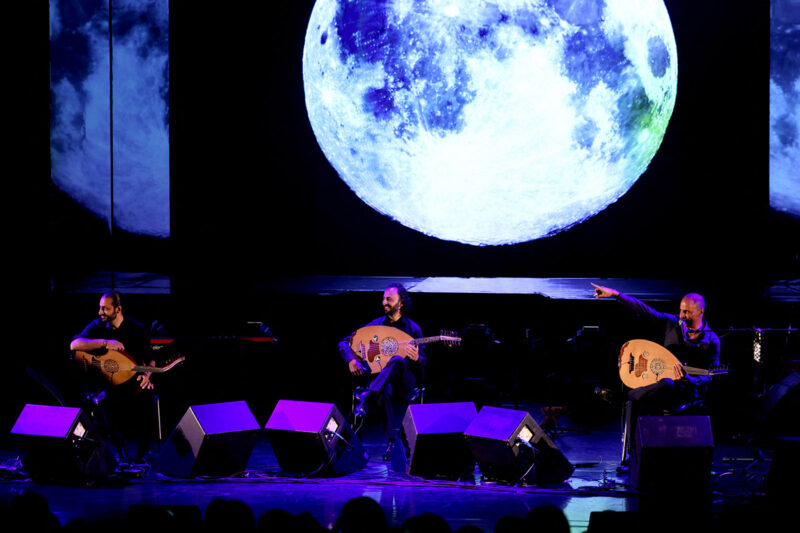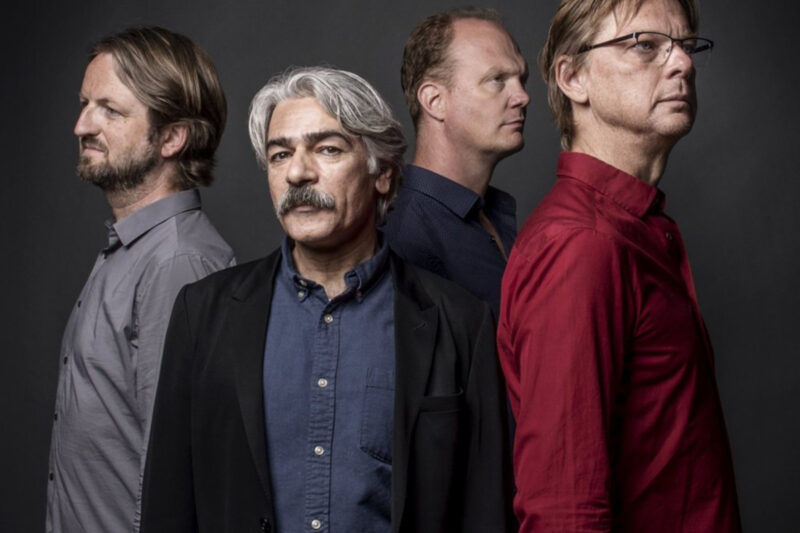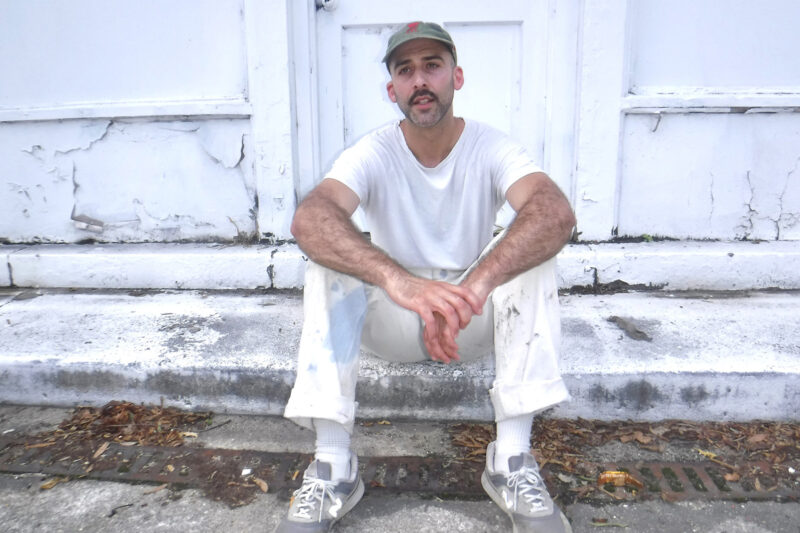Composer Bushra El-Turk: ‘You feel like an alien, but maybe that’s the curse of being an artist’
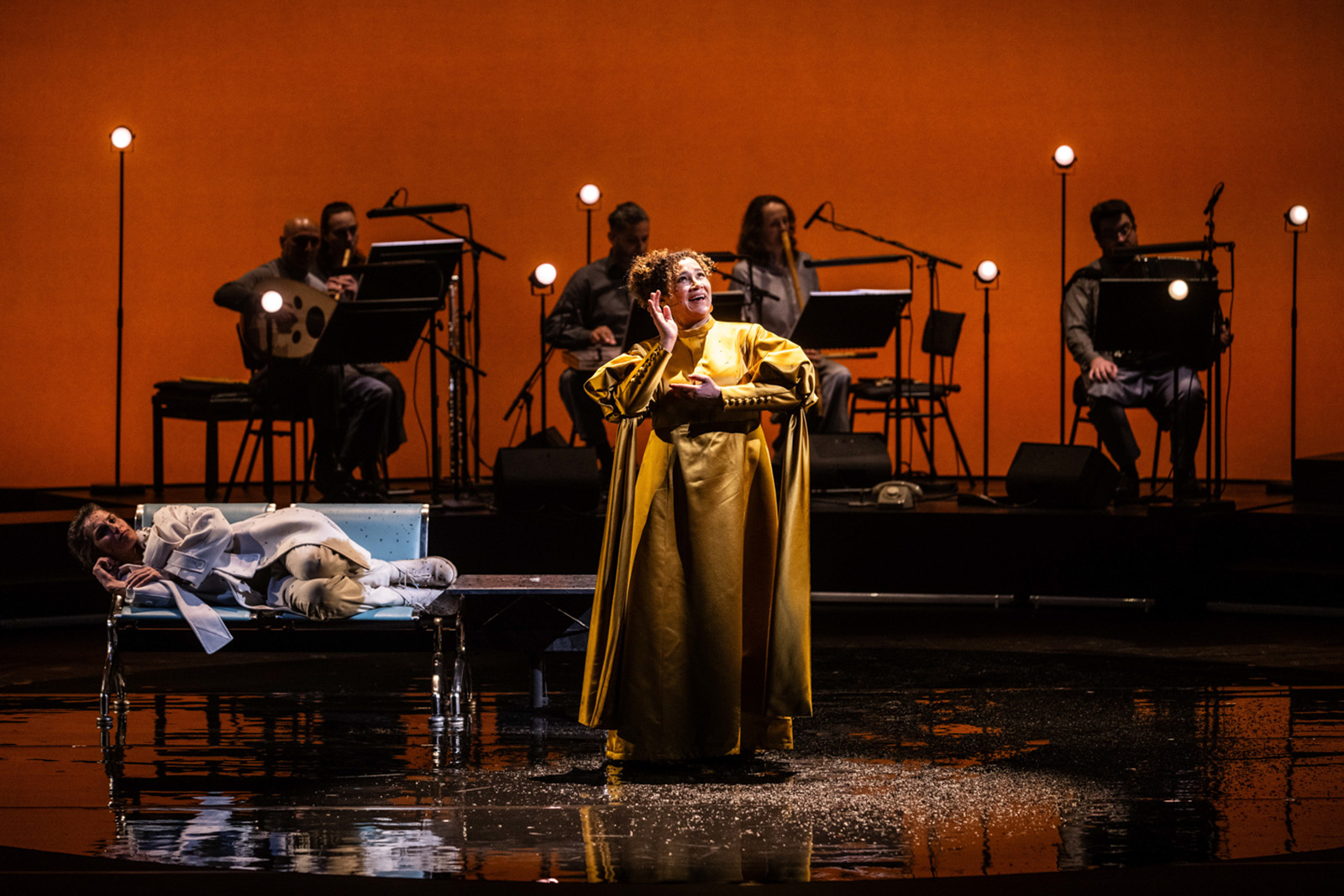
The British Lebanese composer speaks ahead of the UK premiere of her new work Oum, which takes inspiration from Umm Kulthum’s classic Al-Atlal
A 19-year-old man named Wahab journeys to his mother’s deathbed during a nighttime snowstorm. On the bus ride there, he recalls his childhood and the day when her face suddenly became unrecognisable to him: a symptom of the loss he experiences after he and his family flee their war-stricken home country.
So begins Oum, a new work of musical theatre by British Lebanese composer Bushra El-Turk, premiering in the UK at the Barbican on 2 October. Directed by Kenza Koutchoukali and first performed at the Dutch National Opera in March, Oum is an adaptation of the play Un obus dans le coeur and excerpts of the 2003 novel Visage retrouvé, both by the Lebanese Canadian author and playwright Wajdi Mouawad. Oum tells the story of Wahab, a child of diaspora, as he grapples with the terror of becoming blind to his mother’s face and their fractured relationship.
Woven around Wahab’s monologue are extracts from Al-Atlal (The Ruins), Egyptian singer Umm Kulthum’s 1966 classic, whose lyrics are drawn from a poem by Ibrahim Nagi — a melancholic lament for past loves and the remnants of distant homelands. Initially heard as fragments intertwined throughout El-Turk’s original composition for the production, the melody of Al-Atlal reaches a crescendo as the performance progresses, before the song is eventually performed in its entirety.
“Conceptually, it sums up the whole idea of the work really well,” El-Turk tells me, adding that the character Wahab is in conflict “with his identity, like so many in my generation, in terms of their relationship to their heritage”.
Born in London to Lebanese parents who left Beirut in the early 1980s during the civil war, El-Turk is among the most prolific composers of Arab heritage working in the UK today, having written more than 60 works for the stage and screen. These often pay tribute to her background, blending musical traditions in pieces that have been performed at London’s Royal Opera House, the Lincoln Center in New York, and the Théâtre du Châtelet in Paris. In 2024, she received an Ivor Novello award for an operatic adaptation of Egyptian writer Nawal El Saadawi’s novel, Woman at Point Zero.
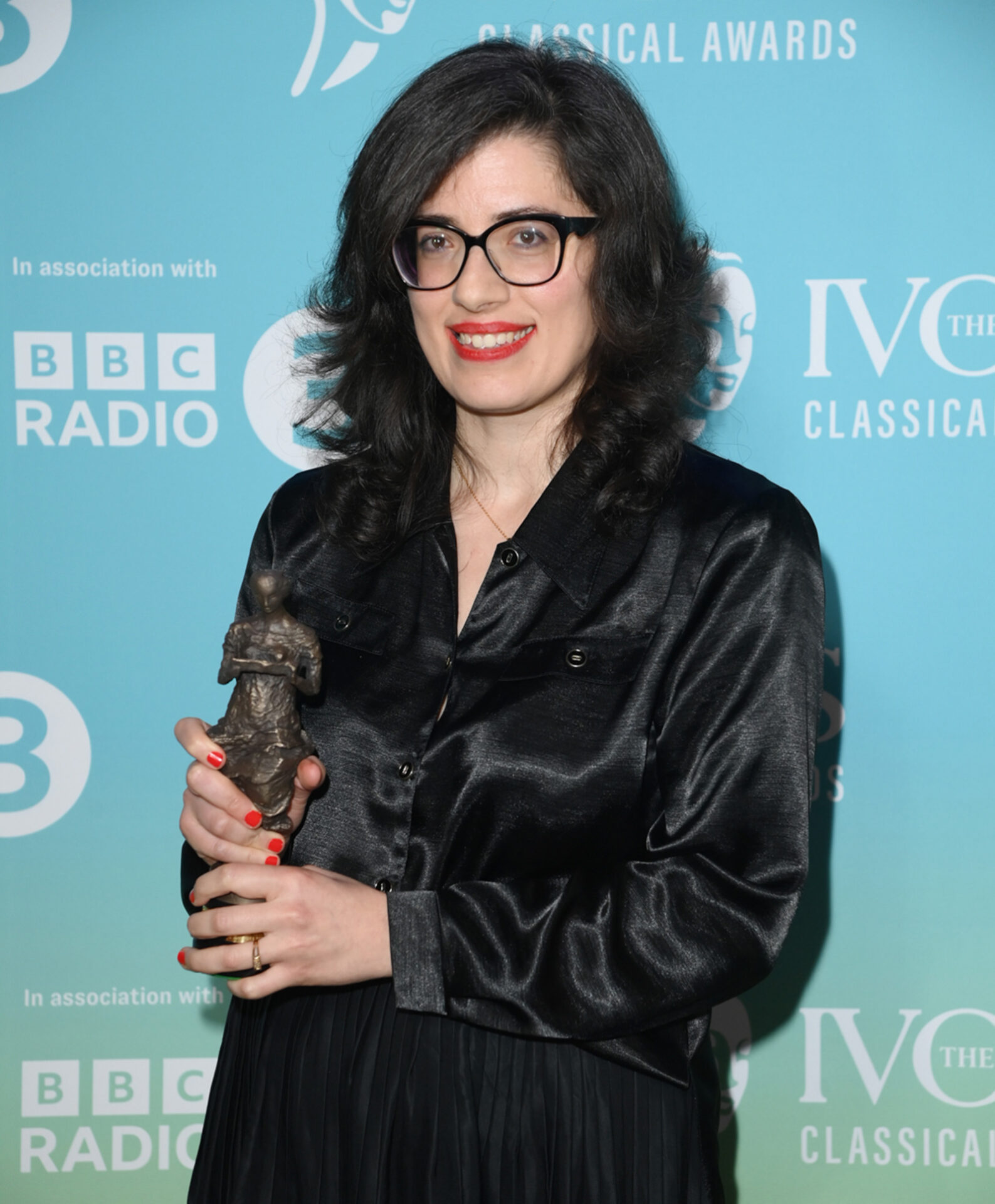
In her composition for Oum, El-Turk uses the song Al-Atlal as both a centrepiece and as a point of departure, creating abstractions of its melody. During development, El-Turk and the Amsterdam Andalusian Orchestra collectively improvised interpretations of the song to create the production’s soundscape.
“Everyone on this project is somehow connected to Umm Kulthum’s memory, and she means something to all of us,” El-Turk says. Koutchoukali describes the song as embodying “the sorrow of a lost home, the longing for love, and ultimately the promise of reconciliation”.
For El-Turk, Umm Kulthum evokes trips to Beirut as a child and listening to her father’s record collection at his flat. Among the cassettes were the singer’s albums, mostly amassed in the years before the war.
“The memory of Umm Kulthum is being in the back of a sweaty taxi driver’s car in the heat outside. Some people would say it’s the food they imagine — fasolia — or the dishes they associated with her around the table with their families. I do smell that kind of musty old furniture when I think of her, even though my idea of home is questionable because I am the daughter of diasporic parents. I didn’t leave anything behind like they did.”
El-Turk was exposed to her father’s love of poetry and music at an early age, while her mother had learned the piano by ear and once studied with the same teacher as composer Ziad Rahbani, the son of legendary Lebanese singer Fairuz. She often played the French children’s song “petit papa” to her and her brother. At secondary school in London, El-Turk admired Stravinsky and Bartok, frequently improvising works rather than practicing her scales on the cello.
When El-Turk was 17, she recalls hearing a blackbird twitter a rhythm that she was compelled to write down. “I felt this kind of euphoric inspiration. I was so happy. I told my mum I could imagine this orchestral work,” she says. “It wrote itself, which is one of the very few times that pieces write themselves.”
In the years since, El-Turk has studied classical Arabic music, received a PhD in musical composition, and led Ensemble Zar, a cross-genre, experimental group composed of musicians trained in the western and eastern repertoires. “Having Lebanese roots, or any roots that are not western, for example, there’s an expectation as an artist that you have to have these inflections of your heritage in your music. Sometimes you ignore it and other times you’re genuinely interested,” El-Turk explains.
“I had a composition teacher, Julian Philips, who encouraged me to follow my roots, because the tradition is so rich.”
For the Dudok Quartet in Amsterdam, El-Turk recently composed a set of pieces inspired by three Levantine female singers who lived during the mid-19th and early 20th-century cultural renaissance in the Arabic-speaking world. Earlier, as part of a five-year engagement with Amsterdam’s Atlas Ensemble, she produced works that drew on string instruments such as the Indian sarangi, the Chinese erhu and the Turkish kemenche.
“I feel at home in those multitudinous traditions. Everyone in the ensemble felt like they were from everywhere and nowhere, and I felt that too,” El-Turk says. “You feel like an alien everywhere, really. But maybe that’s also the curse of being an artist.”
Oum – A Son’s Quest for His Mother is showing at London’s Barbican Centre on Thursday 2 October.
 Newsletter
Newsletter


